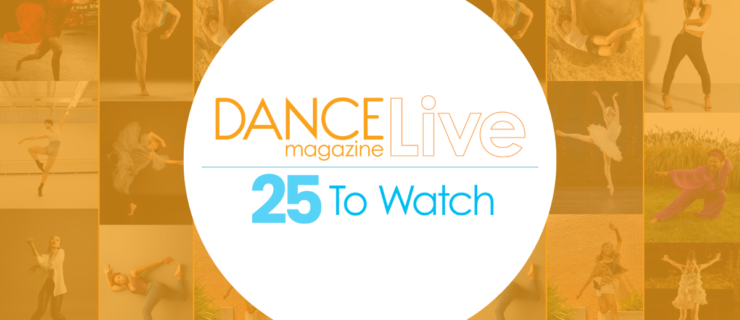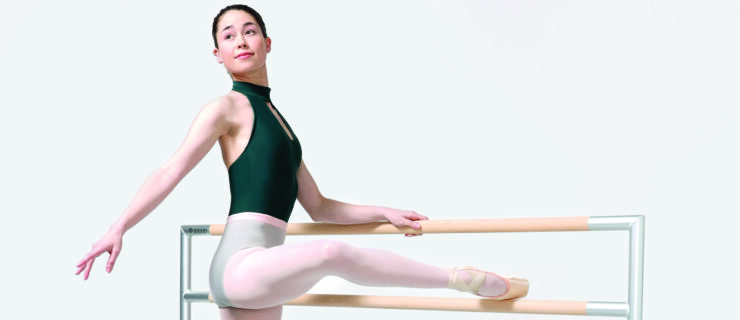Surviving Peer Pressure
“I feel so fat! Let’s go gluten-free for a while.”
“Come have a cigarette with us.”
Sound familiar? Many dancers encounter peer pressure. Whether your classmates are trying new diets or smoking and drinking, you might feel left out if you don’t follow the crowd. But giving in to social pressures can result in unhealthy habits. Margaret Tracey, director of the Boston Ballet School, has even seen it lead to a decline in technique. “Girls who are affected by cliques,” she says, “tend to be overly focused on what others think,” rather than on their own development as dancers. If you’re struggling with peer pressure, read on for tips from the experts on ways to deal with some of the most common scenarios.
Body and Eating Issues
Dance emphasizes perfection, and dancers frequently make the mistake of thinking there’s one “best” body to strive for. “Students focus a lot on how they look, which is exacerbated by social media and constant use of a mirror,” explains dance therapist Dr. Lynda Mainwaring. That can lead to peer competition and snarky comments in the studio.
If your friends are unkind about your body—or if they constantly harp on their own perceived imperfections, and expect you to do the same—don’t let their negativity overwhelm you. Focus on what you like about your shape and your dancing. Vivian Shock, a competitive dancer at CC & Co. Dance Complex in Raleigh, NC, learned not to obsess over the fact that she wasn’t “all legs.” Instead, she decided to zero in on one of her technical strengths: pirouettes. “I started working on lifting my relevés and passés,” she explains. Seeing technical improvement can give you an instant body confidence boost.
Although weight pressures are a common issue in dance, remember that everyone looks and moves differently. “Stay away from scales, as they don’t account for daily fluctuations,” Mainwaring warns. And always consult a nutritionist before starting a new diet, even if all of your friends swear by it. It may be “in,” but that doesn’t make it the right choice for you.
Drinking and Smoking
Juggling high school and an intense dance schedule is incredibly stressful. Dancers need ways to relax, which can make it hard to say “no” when peers from dance or school pressure you to try drinking or smoking as an outlet.
If your friends are always asking you to join them for smoke breaks between classes, Mainwaring strongly advises finding positive “distraction activities” to substitute—things that’ll both relax your body and give you a reason to say “no, thanks.” Try watching inspiring dance videos, rolling out your muscles or just taking a walk.
Bullying
Because dance is so intensely competitive, jealousy and self-confidence issues can sometimes escalate studio peer pressure to the point where it becomes full-on bullying. “Some dancers lash out at their peers in dressing rooms, backstage or on social media as a way to elevate themselves and make themselves feel better,” Mainwaring explains.
Don’t hesitate to tell a teacher or a trusted adult when bullying occurs. And while constant negative feedback from others often leads to self-deprecating thoughts, find a way to stay positive in the classroom, even on bad days. “Don’t set yourself up for failure,” Mainwaring says. She suggests using mental phrases, such as “I’m ready” and “I love dancing,” to help you concentrate on personal goals in the classroom, rather than getting dragged down by others.
Above all, remember that you are the one in control of your choices. “Students who feel the weight of intense peer pressure should shift the focus back to themselves and their individual journey,” Tracey says. Concentrating on your own goals, rather than your peers’ perceptions of you, will make all the difference—in your dance training, and in your life as a whole
The Toxic Friends Problem
Pretty much everyone will have to deal with peer pressure at some point. But if it’s a constant issue for you, the problem could be your group of friends. Strive to surround yourself with people who are as driven as you are, both at school and in the studio. Look for peers who are focused on learning and improving instead of causing drama or drinking. “A circle of close, understanding friends is essential if you’re trying
to avoid making bad choices,” says Eileen Juric, a longtime teacher and founder of BalletBarreNone. “Find a good crowd that will encourage you rather than put you down.”
That said, separating from toxic friends can be difficult. Rather than making a sudden hard break, which can feed the drama mill, try distancing yourself from unsupportive peers gradually. “Inappropriate behavior can either be ignored or reported privately to a teacher,” says dance therapist Dr. Lynda Mainwaring. “Then you can remove yourself from the situation quietly. You’ll know you’ve found the right friends if they allow you to maintain your own standards.”



